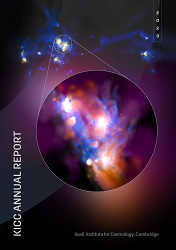
Submitted by Administrator on Wed, 29/05/2019 - 12:13
100 years of general relativity
Wednesday 29th May 2019 marks the 100th anniversary of the 1919 eclipse expeditions, undertaken by Arthur Eddington and colleguges in order to provide experimental evidence for Einstein's theory of General Relativity.
Published in 1916, Einstein's theory of general relativity describes the curving of spacetime by matter, and explains how gravity is best understood as a geometric property of spacetime.
But it was the 1919 eclipse expedition that provided experimental evidence that the theory was correct, which catapulted Einstein onto the front pages of the world's newspapers.
One of the key predictions of general relativity is that mass curves spacetime. As light travels through this curved spacetime, it will be deflected (just like light travelling through a lens). The Sun, being a massive object in space, should bend spacetime around it, making the positions of stars close to the Sun appear to shift -- but this could only be seen during a total eclipse. The total solar eclipse of 1919 provided an excellent opportinuty to test the theory.
The Cambridge astronomer Arthur Eddington and collegues set out for the West African island of Príncipe, where they took measurements of the positions of stars during the total solar eclipse of May 29, 1919. To their delight, the positions of the stars appeared to shift by 1.75 arcseconds (a very small angle: 1 arcsecond is 1/3600 of a degree!), exactly as predicted by Einstein's theory.
The result was a sensation, making the front pages of newspapers around the world and catapulting Einstein to international fame.

In the century since, general relativity has become the cornerstone of our understanding of the Universe we live in. From black holes, to gravitational lensing, to the expansion of the Universe itself, nothing in modern cosmology can be understood without the context of Einstein's theories.


